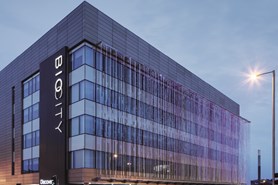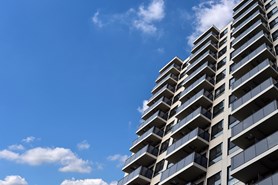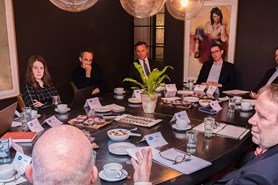This week the British Council for Offices membership came together to look at the future world of workspace, with a conference focus of ‘where people meet places’. Where better to converge than in Denmark, a country esteemed for a model work/life balance and ranked 2nd in the UN’s World Happiness Report due to high values of well-being, freedom and trust, amongst others.
Well-being, freedom and trust are essential ingredients to forming any well performing community and according to the OECD Better Life Index, there is a strong sense of society and high levels of civic participation in Denmark, with 95% of people believe that they know someone they could rely on in time of need.
Reliance in the community is reflected in the Danish approach to not only balancing life and work, but also in the workplace itself. Flexible working strategies as well as highly employee-orientated workspaces create a culture of mutual appreciation and respect, encouraging greater productivity.
In an age of constant digital innovation and agile policies allowing workers to operate from anywhere with the correct technological tools at their fingertips, today’s workforce is craving social interaction. Studies show that increased connections with colleagues in social settings at work improves mental wellbeing and happiness, impacting productivity. We’re seeing an increase in companies trying to counter technological isolation and satisfy employee demand through the creation of shared workplaces and the fit-out of office spaces which put the community first as part of the design process. The blank canvas of the open-plan office is being transformed into an engaging space which is divided to reflect individual personalities and interests of a business’ workforce, supporting the functions that they need to carry out to do their jobs most productively.
Clients we’re working with across all sectors are placing fit-out alignment with workforce needs at the top of the agenda. For some that might mean incorporating games rooms into office layouts to channel creative thinking, or pop-up food market style catering services to encourage social engagement between employees. With 68% of the world’s population expected to live in urban areas by 2050, there has been an increased emphasis on the incorporation of indoor and outdoor gardens to office developments. The gardens on the 9th floor of 120 Fenchurch Street are a prime example of how a green space can support a city’s community and are not only open to workers in the building but the general public as well.
As the BCO conference closed this week, we announced that the 2020 event will be held in Toronto, a city which counts Deloitte’s ‘University’ as an example of one of its community-focussed offices. The building comprises 18 different types of workspaces, giving employees the freedom to choose the most relevant and productive zone for them to complete work in. Ranked the 7th most liveable city in the world according to The Economist, we look forward to reconvening in Toronto to explore how the sector is nurturing the demands of the workforce community in 2020.

Robin BrodieCooper
Director, Cost Management
- robin.brodiecooper@gleeds.com
- 07718804111



